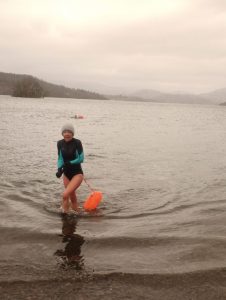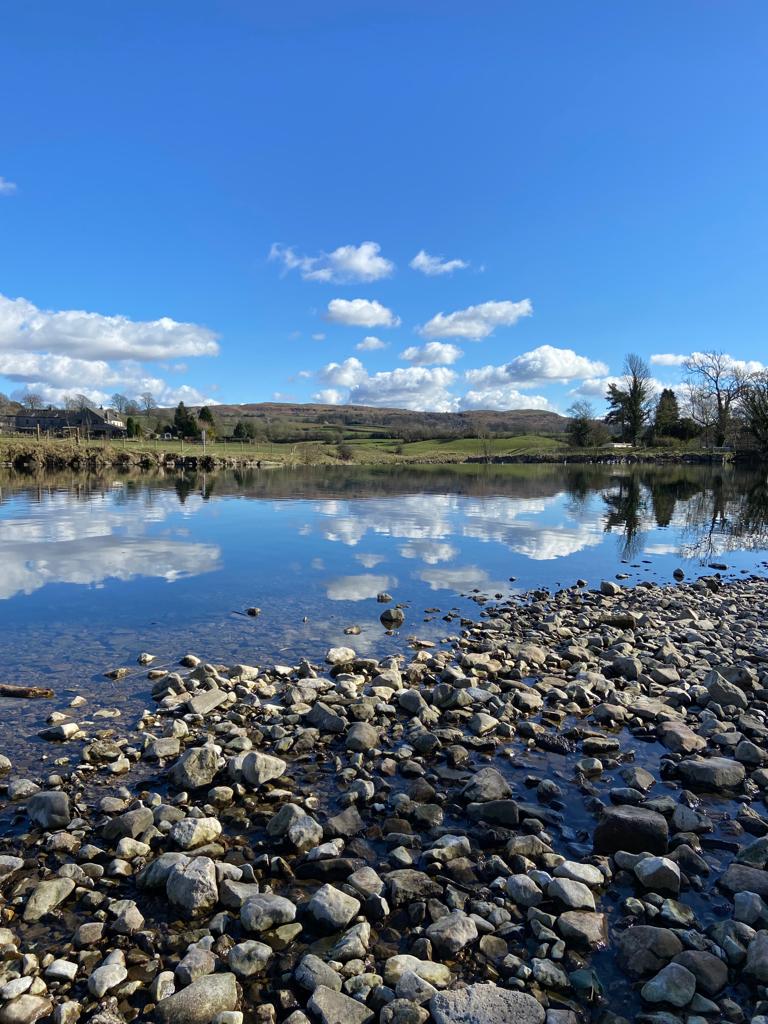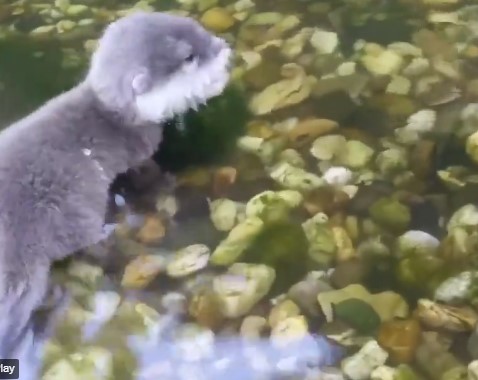 My sister livers in the Lake District and has been wild swimming/cold water swimming in the lakes and rivers up there for a few years now. I have often promised to go with her and finally stopped being all mouth and no trousers by taking a dip with her.
My sister livers in the Lake District and has been wild swimming/cold water swimming in the lakes and rivers up there for a few years now. I have often promised to go with her and finally stopped being all mouth and no trousers by taking a dip with her.
Most of the time Jenny goes swimming in Lake Windermere, a lake that is under stress from phosphorus pollution from untreated (or only partially treated) sewage discharge. In 2022 there were 246 full days of sewage discharged from storm overflows into the Windermere catchment area and Save Windermere has been set up to campaign to prevent the lake becoming ecologically dead. Jenny went to the latest celebrity fuelled demonstration and fell ill with diarrhoea and vomiting, ironically not from swimming but from a dodgy pasty she ate!
So, what is wild swimming exactly? Basically it’s swimming outside in a natural pool of water, be it a river, a lake or a sea. I more equate it with rivers or lakes to be fair and call swimming in the sea, swimming in the sea! And cold water swimming? It’s technically swimming outside in unheated water that’s less than 15 OC. I looked up average temperatures in Lake Windermere, and they come out as 4.8 OC in winter, 7.6 OC in spring, 10.3 OC in autumn and a 14.7 OC in summer, though can get up to a positively balmy 20 OC in July
So what are the benefits of wild water swimming?
Communing with nature is one I guess. No chlorine in the water like in swimming pools has to be another.
And the benefits of cold water swimming?
Some of the benefits are the same as cold water showers which I have blogged about before when I was considering the 30 day cold shower challenge but to refresh the memory…
Reduced stress. Cold water creates a stress reaction in the body. Breathing frequency and heart rate increases and the stress hormone cortisol is released, which is the same reaction if we find ourselves in a scary or tense situation. The stress reaction recedes as you adjust to the temperature and there is now evidence to suggest that repeatedly putting your body through cold water immersion gradually reduces the severity of the initial stress reaction. It is not that cold water swimmers become acclimatised to the water, but that they just get used to their body’s reaction and the reaction itself becomes less severe and this in turn manifests itself by a reduction in the stress response to other stressful situations.
Decreased Inflammation. In the same way that ice baths work, the body reacts to the cold temperatures by directing blood away from the extremities to protect the organs in the core. The low blood flow to the limbs decreases inflammation and allows muscles to recover much quicker.
Increased Immunity. Although the science isn’t conclusive, the stress reaction caused by cold water immersion may trigger an increase in white blood cell production, which provides a natural boost to the immune system.
The release of dopamine. The mix of exercise and cold water exposure triggers the body’s feel good hormone.
So how did I find it?
 The original plan was to swim in the lake but I took so much time to actually commit that Jenny had moved to Kendal. So we chose the River Kent instead, five minutes’ walk from her new place. It is right next to Kendal’s sewage treatment plant but Jenny has mates who sample the water regularly where we were going to swim and levels of phosphorus and nitrogen were normal the week before. I wasn’t sure if we were swimming upstream or downstream from the plant. Upstream I hope, but I guess if they were sampling it was downstream… Also I think I spotted a sanitary towel in the shallows though I tried not to look too closely. I didn’t think to take a thermometer, but looking at those average temperatures at the front of the blog, and although the water was still pretty nippy I reckon it counted as wild swimming only and not cold water swimming.
The original plan was to swim in the lake but I took so much time to actually commit that Jenny had moved to Kendal. So we chose the River Kent instead, five minutes’ walk from her new place. It is right next to Kendal’s sewage treatment plant but Jenny has mates who sample the water regularly where we were going to swim and levels of phosphorus and nitrogen were normal the week before. I wasn’t sure if we were swimming upstream or downstream from the plant. Upstream I hope, but I guess if they were sampling it was downstream… Also I think I spotted a sanitary towel in the shallows though I tried not to look too closely. I didn’t think to take a thermometer, but looking at those average temperatures at the front of the blog, and although the water was still pretty nippy I reckon it counted as wild swimming only and not cold water swimming.
Jenny has one of those massive dry robes. Swims in a fleece hat. And gloves. And has one of those floaty things so you can easily see her in the water. Has a hot drink to warm up as soon as she comes out etc. etc. I had my swimming cossie and some neoprene boots. Hard core or what?
There were masses of baby fish when I first waded in, so that bit was pretty cool in a communing with nature kind of way. I kept nearly falling over as the weed covered pebbles were very slippery. The bottom of the river is mirrored perfectly in this pic of a baby otter. It’s actually a still from a video I found on twitter (though sadly couldn’t work out how to link to it.)Which is a shame since it was faffing around entering a river with exactly the same high pitched squeak made by yours truly!
I kept nearly falling over as the weed covered pebbles were very slippery. The bottom of the river is mirrored perfectly in this pic of a baby otter. It’s actually a still from a video I found on twitter (though sadly couldn’t work out how to link to it.)Which is a shame since it was faffing around entering a river with exactly the same high pitched squeak made by yours truly!
Jenny was very insistent I breathed OUT as I went in. As a safety mechanism since Cold Water Immersion can trigger involuntary gasping, rapid breathing or hyperventilating and can create a drowning emergency if you inhale water and cannot stay afloat. I did a bit of gasping but nothing major. Swam about a bit. At one point we thought would be good to swim to the other side of the river but then we thought of crocodiles so stayed on our own side. Chatted a bit. Got out. And that was it really!
Survived!!
And some details of the shower you had after your experience I hear you ask? Well, actually I had to race off to get to a Birmingham campsite before dark (long, cricket related story) so I didn’t even get round to showering. By the time I did shower it was the following day and I felt a bit itchy all over…
A video here about the benefits of open water swimming

